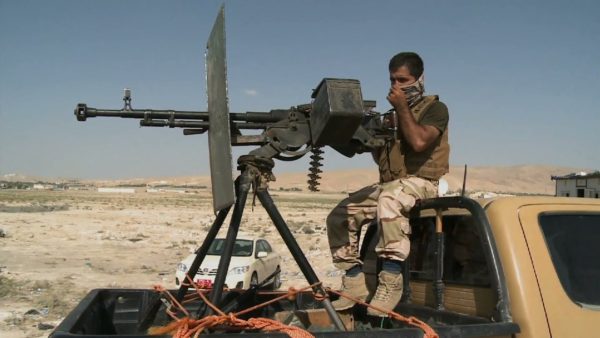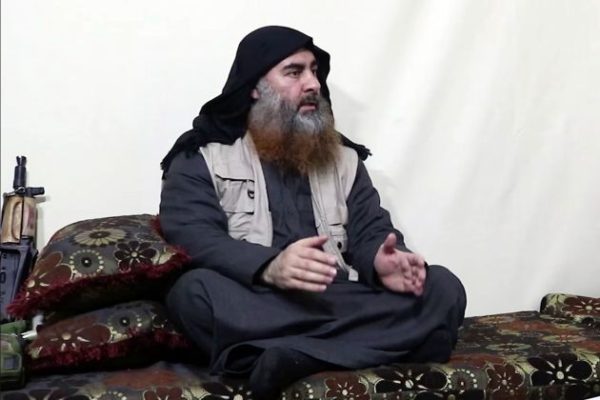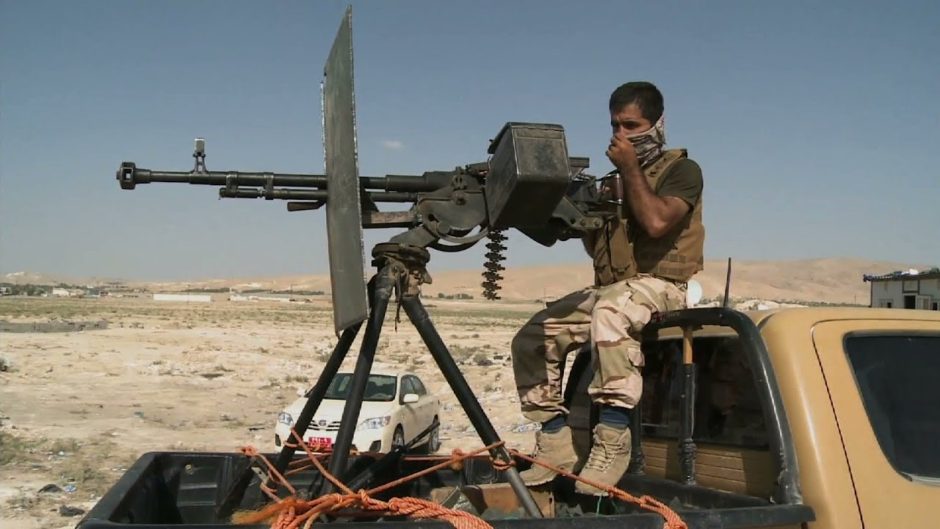Pounded relentlessly by a dizzying array of adversaries in the past few years, Islamic State is nonetheless back with a vengeance.
The Easter Sunday suicide attacks in Sri Lanka, which claimed the lives of about 250 locals and foreigners, was the work of a local cell that had pledged allegiance to Islamic State. They were among the deadliest operations ever mounted by Islamic State, a Sunni jihadist organization which has left a trail of death and destruction throughout the Middle East and Western Europe.
The bombings in Sri Lanka — an island nation with a majority Buddhist population and significant Hindu, Christian and Muslim minorities — were masterminded by Zaharan Hashim, an Islamic State acolyte from a wealthy Muslim family who had been brainwashed by Saudi Arabian-style Wahhabi Islam.

In a video released on April 29, his first in five years, Islamic State’s leader, Abu Bakr al-Baghdadi, congratulated the eight terrorists who attacked churches and luxury hotels in three Sri Lankan cities. He said the assaults had been carried out in “revenge” for its most recent losses in Syria.
Several weeks ago, Kurdish and Syrian Arab fighters, backed by U.S. airpower, captured the town of Baghuz, Islamic State’s last bastion in Syria. With its fall, Islamic State lost its last remaining territorial foothold in Syria, a country that has been embroiled in a civil war for the past eight years.
Before losing its fixed positions in Syria, Islamic State went down to defeat in Iraq, from where it emerged during the 2003-2011 U.S. occupation.

Islamic State, which reached its peak of influence and power in 2014 and 2015, was militarily defeated by an unwieldy and unofficial coalition consisting of Syria, Iraq, Iran, Russia, the United States and Kurdish forces.
Baghdadi, who has rarely appeared in public, disappeared shortly after announcing the formation of Islamic State’s short-lived caliphate in 2014. He made his announcement from the pulpit of the Al Nuri mosque in Mosul, the second largest city in Iraq. Having easily routed the Iraqi army, Islamic State captured Mosul in June of that year.
Flush with victory, Islamic State conquered yet more Iraqi towns and expanded its operations into Syria, prompting the United States to launch a concerted air campaign against its bases and pushing Russia to expand its military presence in Syria, its client state since the 1960s.
Baghdadi’s video was like a bolt out of the blue, surprising many observers. American commandos have been hunting him since 2014, and the U.S. government has offered a $25 million reward for his capture. To this day, his whereabouts are unknown. In all probability, he is hiding in one of the remote corners of the vast Syrian or Iraqi desert.
In his 18-minute video, Baghdadi looks older and heavier and his black beard is streaked with strands of grey hair and tinged with henna dye. Reclined on a cushion, with an assault rifle close by, Baghdadi declared that Islamic State is still in the business of waging jihad against infidels.

“Our battle today is a battle of attrition, and we will prolong it for the enemy. They they must know that the jihad will continue until Judgment Day,” he said, referring to Islamic State’s decision to regroup and conduct guerrilla warfare and launch suicide attacks against its enemies. “Truthfully, the battle of Islam and its people with the crusader and his people is a long battle.”
Baghdadi’s video is current, since he mentions last month’s general election in Israel and the downfall of Sudan’s and Algeria’s long-serving presidents. He put out the video to prove he is alive and well and to inspire followers to persevere in the face of adversity.
By all accounts, Islamic State commands the loyalties of some 30,000 fighters in Iraq and Syria and of affiliates in countries ranging from Egypt to Afghanistan.
In mid-April, in its biggest operation in months, Islamic State killed 35 Syrian soldiers over the course of a couple of days, according to the reliable Syrian Observatory for Human Rights, which monitors the civil war in Syria. And in Syrian and Iraqi cities it previously occupied, such as Raqqaa and Falluja, Islamic State has carried out fresh raids.
This much seems clear. Islamic State, though battered and beaten on the battlefield, is far from obliterated. It remains a potent threat, not only in the Middle East but also in faraway places like Sri Lanka.
